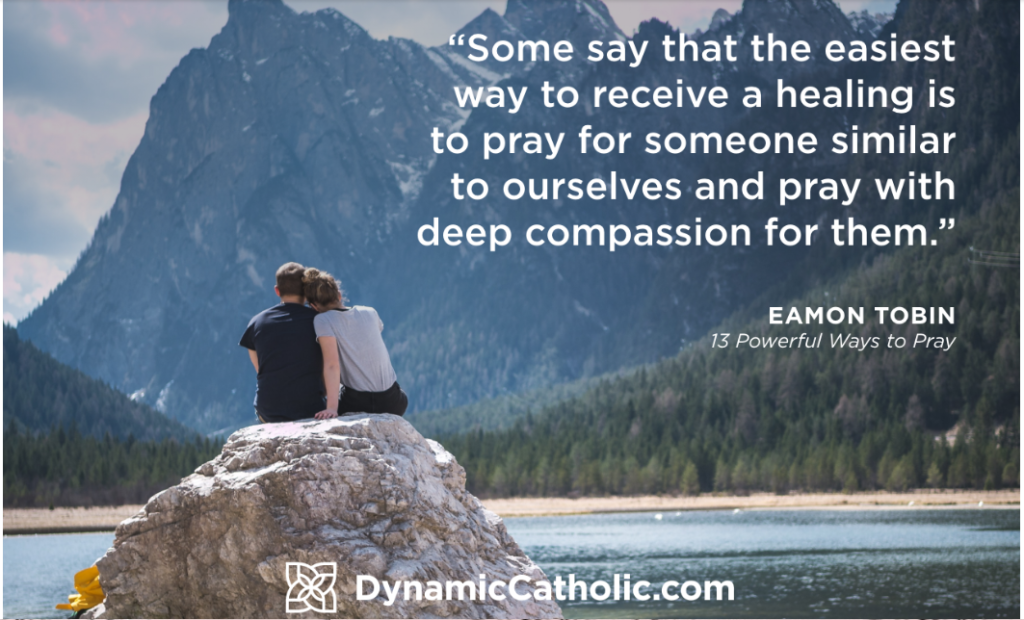
Kinder
3 Levels of Healing (and Where to Start)
Just like there are different levels of maintenance we have to keep up with in our homes, there are different levels of maintenance in our spiritual lives. This can be delicate, difficult, and sometimes messy work.
So, while Fr. Mark-Mary is not a mental health professional, he’s here to share a couple tips and fundamentals that will help anyone get back on track.
https://www.youtube.com/@AscensionPresents
The Real Questions

//Clergy Coaching Network//
The Real Questions

//Clergy Coaching Network//
Minute Meditation – Jesus Never Promised Success

At no point in the Gospel does Jesus tell us that if we follow him our lives will be filled with success or that people will like us for it. Quite the contrary, actually! We follow a man who came to share the love of God with the world through healing and forgiveness, but was rejected by the religious elite, betrayed by his closest friends, and murdered as a common criminal. This is not simply Jesus’s fate many years ago, but ours today. “Take up your crosses daily,” he tells us. While there is nothing wrong with hoping for success in our lives, our faith is destined for problems if it becomes an expectation we cannot live without. The road of discipleship is filled with failure; if we demand that our lives be successful, we won’t make it very far.
—from the book Let Go: Seven Stumbling Blocks to Christian Discipleship
by Casey Cole, OFM, page 28
Daily Reflection – Receiving a Healing

Minute Meditation – The Body Doesn’t Lie

To keep our bodies less defended—to live in our bodies right now, to be present to others in a cellular way—is also the work of healing past hurts and the many memories that seem to store themselves in the body. The body never seems to stop offering its messages. Fortunately, the body never lies, even though the mind will deceive us constantly. Zen practitioners tend to be well trained in seeing this. It is very telling that Jesus usually physically touched people when he healed them; he knew where the memory and hurt were lodged: in the body itself.
—from the book Breathing Under Water: Spirituality and the Twelve Steps by Richard Rohr
Minute Meditation – Mutual Forgiveness

Only mutual apology, healing, and forgiveness offer a sustainable future for humanity. Otherwise, we are controlled by the past, individually and corporately. We all need to apologize and we all need to forgive or this human project will surely self-destruct. No wonder almost two-thirds of Jesus’s teaching is directly or indirectly about forgiveness. Otherwise, history winds down into the taking of sides, deep bitterness, and remembered hurts, plus the violence that inevitably follows. As others have said, forgiveness is to let go of all hope for a different or better past. It is what it is, and such acceptance leads to great freedom, as long as there is also accountability and healing in the process. Nothing new happens without apology and forgiveness. It is the divine technology for the regeneration of every age and every situation. The “unbound” ones are best prepared to unbind the rest of the world.
—from the book Breathing Under Water: Spirituality and the Twelve Steps by Richard Rohr
Minute Meditation – The Body Does Not Lie

To keep our bodies less defended—to live in our bodies right now, to be present to others in a cellular way—is also the work of healing past hurts and the many memories that seem to store themselves in the body. The body never seems to stop offering its messages. Fortunately, the body never lies, even though the mind will deceive us constantly. Zen practitioners tend to be well trained in seeing this. It is very telling that Jesus usually physically touched people when he healed them; he knew where the memory and hurt were lodged: in the body itself.
—from the book Breathing Under Water: Spirituality and the Twelve Steps by Richard Rohr

